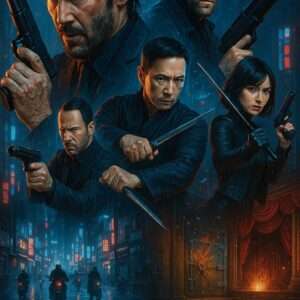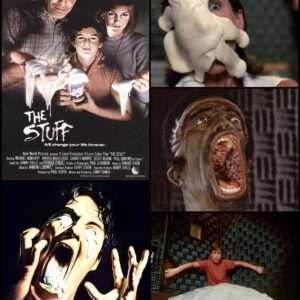Introduction
Bernardo Bertolucci’s The Dreamers (2003) is a film that lingers in the mind long after the credits roll—a sensual, controversial, and deeply cinematic exploration of youth, politics, and eroticism. Set against the backdrop of the 1968 Paris student riots, the film follows three young cinephiles whose intense bond blurs the lines between friendship, love, and obsession. Based on Gilbert Adair’s novel The Holy Innocents, The Dreamers is as much a tribute to classic cinema as it is a daring study of youthful idealism and sexual awakening.
With its lush visuals, fearless performances, and unflinching intimacy, The Dreamers remains one of Bertolucci’s most divisive yet mesmerizing works. This review will examine the film’s thematic richness, its stylistic brilliance, and the controversies surrounding it, while also considering its place in Bertolucci’s filmography and the broader landscape of erotic cinema.
A Cinematic Love Letter
At its core, The Dreamers is a film about the worship of cinema. The three protagonists—Matthew (Michael Pitt), an American exchange student, and the French twins Isabelle (Eva Green) and Theo (Louis Garrel)—bond over their encyclopedic knowledge of films, engaging in trivia games, reenacting scenes, and treating the cinema as a sacred space. Bertolucci fills the movie with references to Godard, Chaplin, and classic Hollywood, making it clear that these characters live and breathe movies.
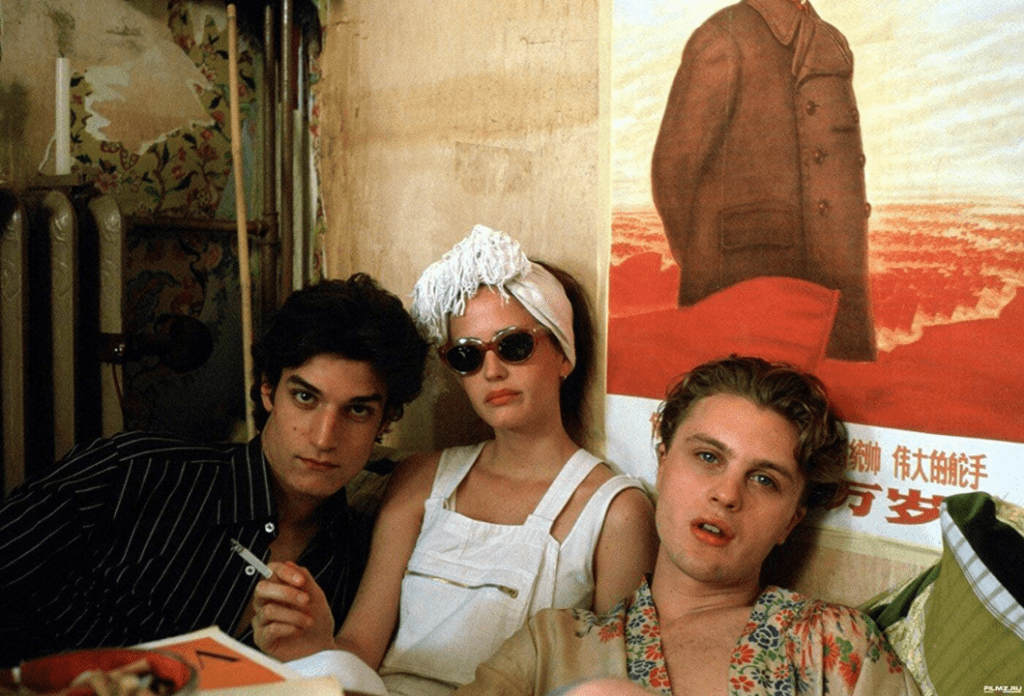
This obsession with film serves as both an escape and a form of rebellion. The twins, in particular, treat life as though it were a movie, blurring reality and fantasy in a way that intoxicates Matthew. Their apartment becomes a self-contained world where societal norms dissolve, and the only rules are the ones they invent.
The Trio’s Electrifying Dynamic
The chemistry between the three leads is the film’s beating heart. Eva Green, in her debut role, is magnetic as Isabelle—equal parts ethereal and volatile. Her performance walks a tightrope between innocence and seduction, making her both alluring and unsettling. Louis Garrel’s Theo is the more politically charged of the twins, his Marxist rants contrasting with his bourgeois upbringing. Michael Pitt’s Matthew serves as the audience surrogate, an outsider drawn into their intoxicating world.
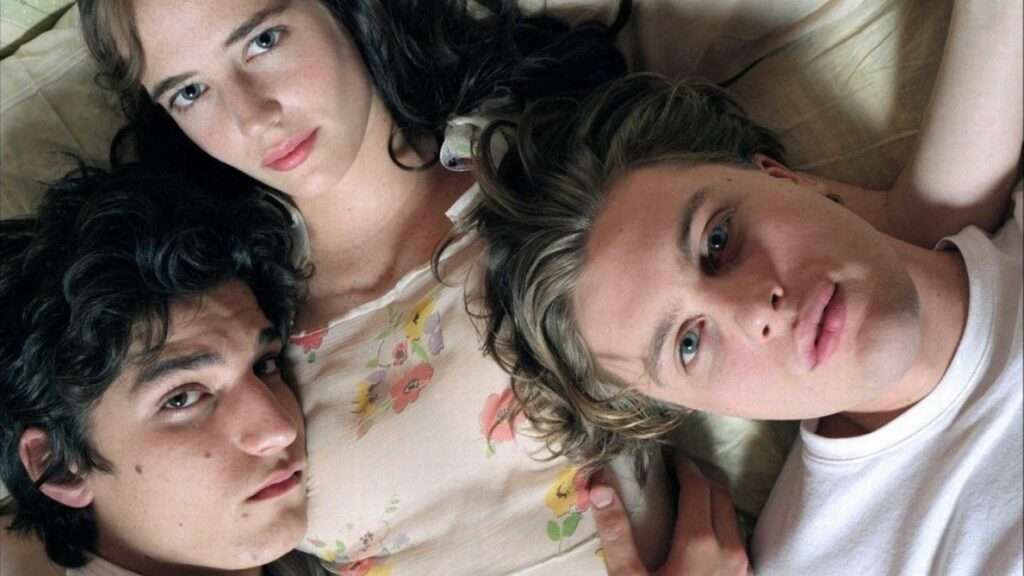
Their relationship evolves from playful camaraderie to something far more intimate and destabilizing. The film’s infamous scenes of nudity and sexual exploration were controversial upon release, but they serve a narrative purpose: these are characters testing boundaries, both personal and societal. The eroticism is not gratuitous but rather a manifestation of their emotional and intellectual connection.
The Political Backdrop: May 1968
While much of the film takes place within the confines of the twins’ apartment, the outside world is in turmoil. The 1968 Paris student riots—a pivotal moment in French history—loom large, with protests against capitalism, consumerism, and the establishment raging in the streets. Theo is deeply invested in the movement, while Isabelle and Matthew remain more detached, lost in their own private universe.
This contrast between personal and political rebellion is one of the film’s central tensions. The twins’ father, a poet, accuses them of being “beautiful losers”—privileged children playing at revolution without real stakes. Bertolucci seems to ask: Is their rebellion genuine, or just another performance? The film doesn’t provide easy answers, instead leaving the audience to ponder the intersection of idealism and naivety.
Bertolucci’s Visual Poetry
Bertolucci, known for his sumptuous cinematography (as seen in The Last Emperor and Last Tango in Paris), crafts The Dreamers with a painterly eye. The apartment, with its dim lighting, vintage decor, and scattered film memorabilia, feels like a dreamscape. Cinematographer Fabio Cianchetti bathes scenes in warm, golden hues, evoking both nostalgia and sensuality.
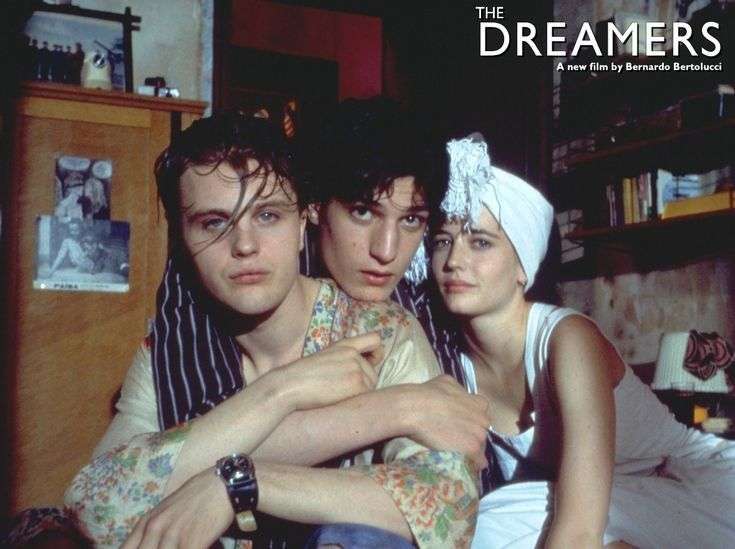
The film’s most striking sequences are its silent recreations of classic movie moments—Isabelle and Theo miming Marlene Dietrich and Groucho Marx, or the trio running through the Louvre in a homage to Godard’s Bande à Part. These scenes reinforce the idea that these characters see life through the lens of cinema, unable (or unwilling) to separate art from reality.
Controversy and Criticism
The Dreamers was met with both acclaim and backlash upon release. Its explicit content earned it an NC-17 rating in the U.S., limiting its theatrical distribution. Some critics dismissed it as pretentious or exploitative, while others praised its audacity and emotional depth.
The film’s handling of sexuality remains its most debated aspect. Unlike Last Tango in Paris, which was steeped in raw, brutal intimacy, The Dreamers portrays sex as something playful, curious, and almost innocent—despite its transgressions. Bertolucci doesn’t shy away from the discomfort of these moments, forcing the audience to confront their own reactions.
Themes of Isolation and Awakening
Beyond its political and cinematic layers, The Dreamers is a coming-of-age story. Matthew’s journey mirrors that of many young people—drawn into a world that seems freer and more exciting than his own, only to realize that freedom comes with its own illusions. The twins, for all their sophistication, are emotionally stunted, trapped in a bubble of their own making.
The film’s climax, in which the trio finally steps outside into the chaos of the riots, serves as a brutal awakening. The real world crashes into their fantasy, exposing the fragility of their utopia. The final shot—a lingering gaze between Matthew and Isabelle—suggests both loss and liberation.
Legacy and Final Thoughts
Twenty years after its release, The Dreamers remains a polarizing yet undeniably captivating film. It’s a work that demands engagement—whether through admiration, discomfort, or debate. Bertolucci’s direction is masterful, balancing lyricism with provocation, and the performances (especially Eva Green’s breakthrough role) are unforgettable.
Is The Dreamers a masterpiece or an indulgent fantasy? Perhaps it’s both. It’s a film about the intoxication of youth, the power of cinema, and the fleeting nature of rebellion. Like its characters, it exists in a liminal space—between reality and dreams, between love and obsession, between art and life.
Final Score: 8.5/10 – A daring, visually stunning, and thought-provoking film that lingers in the soul.

